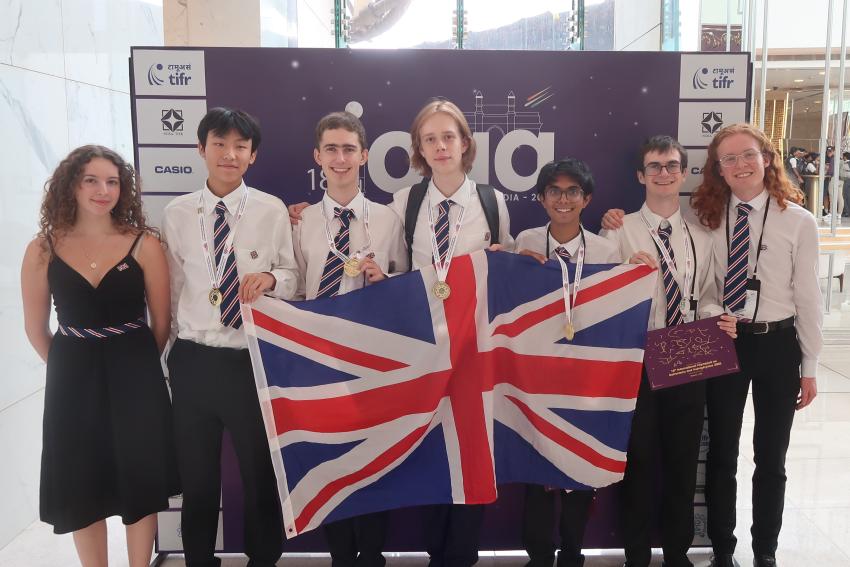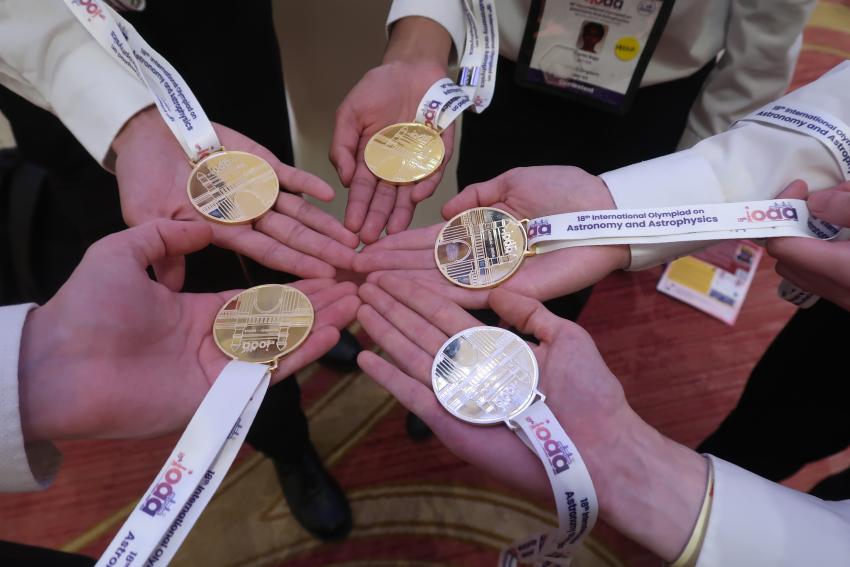The United Kingdom placed second in this year's International Olympiad on Astronomy and Astrophysics (IOAA) after a team of five secondary level students all collected medals in the face of stiff competition from across the world.
Iran emerged as victors for the second consecutive year – earning five Gold medals – but the UK team were not far behind with four Golds and a Silver. One member, Yuvan, a Year 12 student from independent school RGS Guildford scored the 3rd highest Gold of all countries competing.
The 18th IOAA took place from August 11 to 21, in Mumbai, India, and involved more than 300 students from 63 countries.
It is an annual competition at the highest level for secondary school students (who have to be under 20 years before 1 July in the year of the event). Teams of five students and two team leaders enter and have to complete several challenging exams covering theoretical, observational, and data analysis aspects of astronomy and astrophysics.
The UK team members for 2025 were:
- Charlotte (Team leader), an undergraduate at Brasenose College, Oxford
- Puyuan, Year 13 student at Eton College – Gold
- Rory, Year 13 student at Colchester Royal Grammar School – Gold
- George B, Year 13 student at Wallington County Grammar School – Gold
- Yuvan, Year 12 student at RGS Guildford – Gold
- George D, Year 13 student at the Stephen Perse Foundation – Silver
- Ben (Team leader), an undergraduate at Merton College, Oxford
Their tally of four Golds and one Silver placed the UK second, behind victors Iran, and ahead of hosts India in 3rd place, Singapore in 4th and Romania in 5th.
The UK first entered three students in 2015 in Indonesia, winning two Silver medals. In 2016 the full team of five won a Gold, a Silver and a Bronze medal in India (ranking the UK 6th out of 42 countries competing) and in 2017 the team won one Silver and three Bronze medals in Thailand. In Poland in 2023, all five team members were awarded Gold medals, including this year's team leaders Charlotte and Ben.
The team are now sponsored by 'G-Research' (Quantitative research and machine learning) and their supervisor/team selector is Dr Alex Calverley, the Head of Physics at Surbiton High School, who won this year's RAS Secondary Education Award.
Each year five secondary level students are selected via the British Physics Olympiad Competition and several rounds of increasingly complex papers.
For the full results of IOAA 2025, click here.



